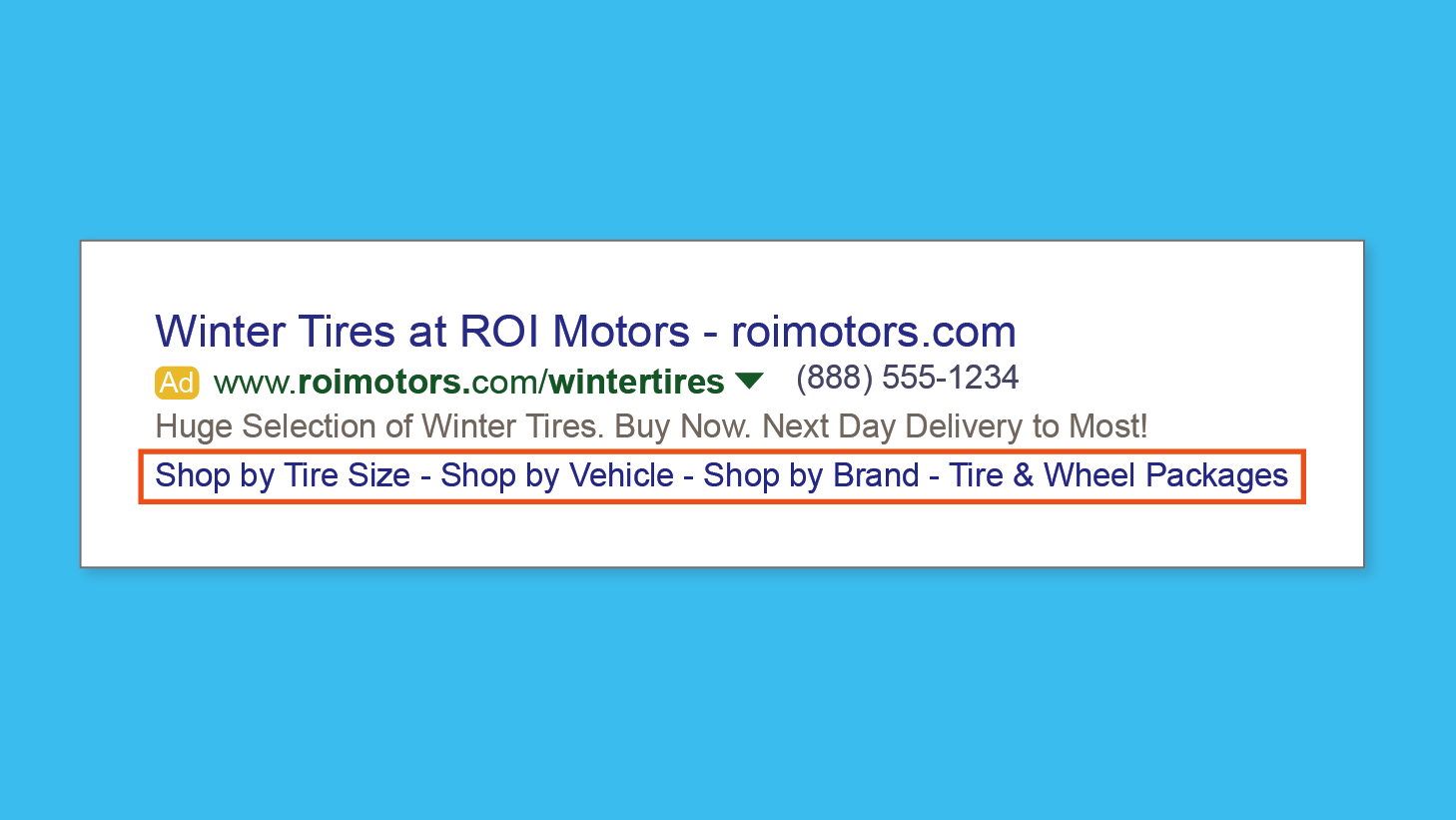QS x MB = AR
No, this isn’t the new slope-intercept form and there won’t be a quiz at the end of this article. We’re here to talk paid search ad performance and the simple equation above is very important to your success. Let me make it a little clearer:
Quality Score x Max Bid = Ad Ranking
Your bid is how much you’re willing to pay on specific keywords, which your automotive advertising agency will determine based on your overall investment as well as your sales strategy (i.e. bidding higher on your best sellers vs. your stales). They should, however, also be helping you on that first part of the equation, Quality Score, to ensure you have a high ranking.
Let’s explore a couple ways you work with your digital advertising provider to improve your Quality Score (QS) and increase your click through rate (CTR), which increases your ad rank on the Google’s search engine results pages (SERP).
Enable Sitelink Extensions
What are they?
Sitelinks are an extension located underneath a Google paid search ad that can be visible on the SERP when an ad is in a top position (most likely positions 1-3, but Google does not guarantee it). These sitelinks are linked to a corresponding landing page. If a car shopper searches for “Snow Tires in Burlington”, an ad would pop up with a sitelink for “Winter Tires” (see the example ad). The shopper then clicks the “Winter Tires” sitelink and is taken to a page that shows tire inventory and deals.
Why should I care?
Sitelinks influence what Google calls “expected clickthrough rate” (CTR), an important factor when calculating Quality Score. The more shoppers that click on your ad, the more relevant and customer friendly you seem to Google, which increases your Quality Score. When sitelinks are enabled, the ad looks bigger, more compelling and eye-catching to the shopper. Additionally, sitelinks give shoppers an immediate choice as to where on your website they want to shop (new, used, parts/service, etc.). Both of these factors mean your ads have a better chance of getting a high CTR and, therefore, your expected CTR is higher, possibly making your Quality Score higher.
Enable Callout Extensions
What are they?
Callout extensions are snippets of text that enhance your existing ad copy. For example, the same shopper searches for “Winter Tires” and the callout extension will read: “Hurry, Limited Inventory – 4 for Price of 3”. If shoppers click on the callout extension, they land on whichever page the ad is pointing.
Why should I care?
Callout extensions follow the same logic for QS and expected CTR as sitelinks. When enabled, the ad again looks bigger, more compelling, and eye-catching to the shopper, making your QS and expected CTR stronger.
Keep Your Ad Copy Consistent
What is it?
Ad copy are the words that make up your paid search ads, and Google’s have three parts: a headline, a display URL, and two description lines. Ad copy is created by your digital advertising partner based on your specific dealership (inventory, service department, etc.) and should be set when you launch a campaign.
Why should I care?
Changing standard ad copy can negatively impact QS and ranking. When ad copy is constantly refreshed, your ads lose history and, consequently, lose trust with Google. When Google trusts you less, your QS could drop and, even though your bid stays the same, your ad ranking could drop as well.
When you choose to enable sitelinks and callout extensions, and leave ad copy intact, your history and trust level with Google is maintained. Your digital advertising partner should use this strategy for incentives: sitelinks can deep link to a page about the incentives while keeping the ad copy history consistent.
Summary:
Quality Score x Max Bid = Ad Rank
Even though your ads won’t serve sitelinks or callout extensions every time your ad is served, having them enabled and eligible on an account helps QS and expected CTR, increasing your Ad Rank. And keeping your ad copy as consistent as possible means Google trusts you more, and prevents you from having to start from zero each month.
Annie Ode is the advertising product marketing manager at Dealer.com



